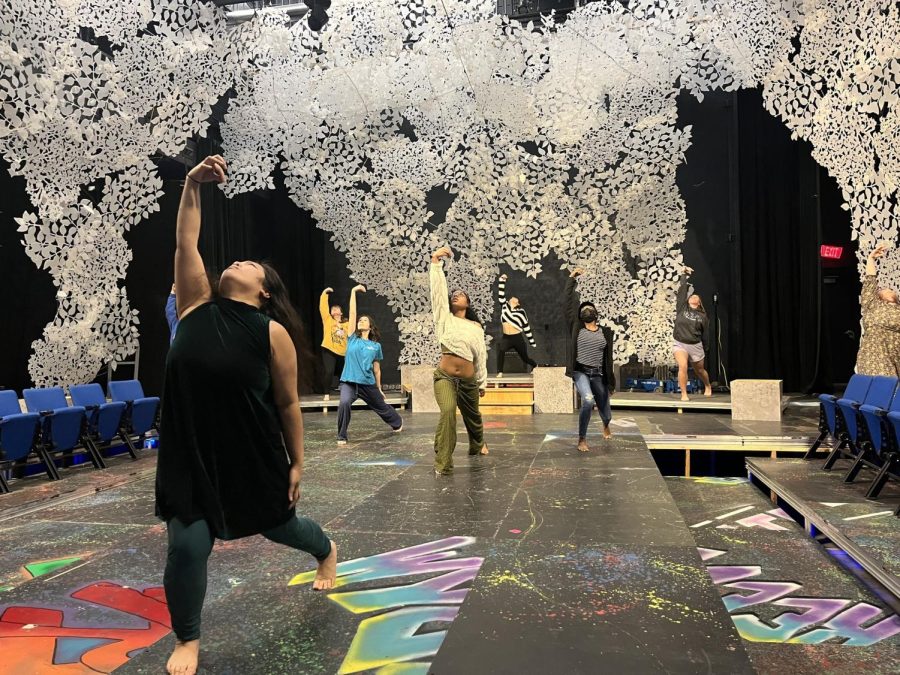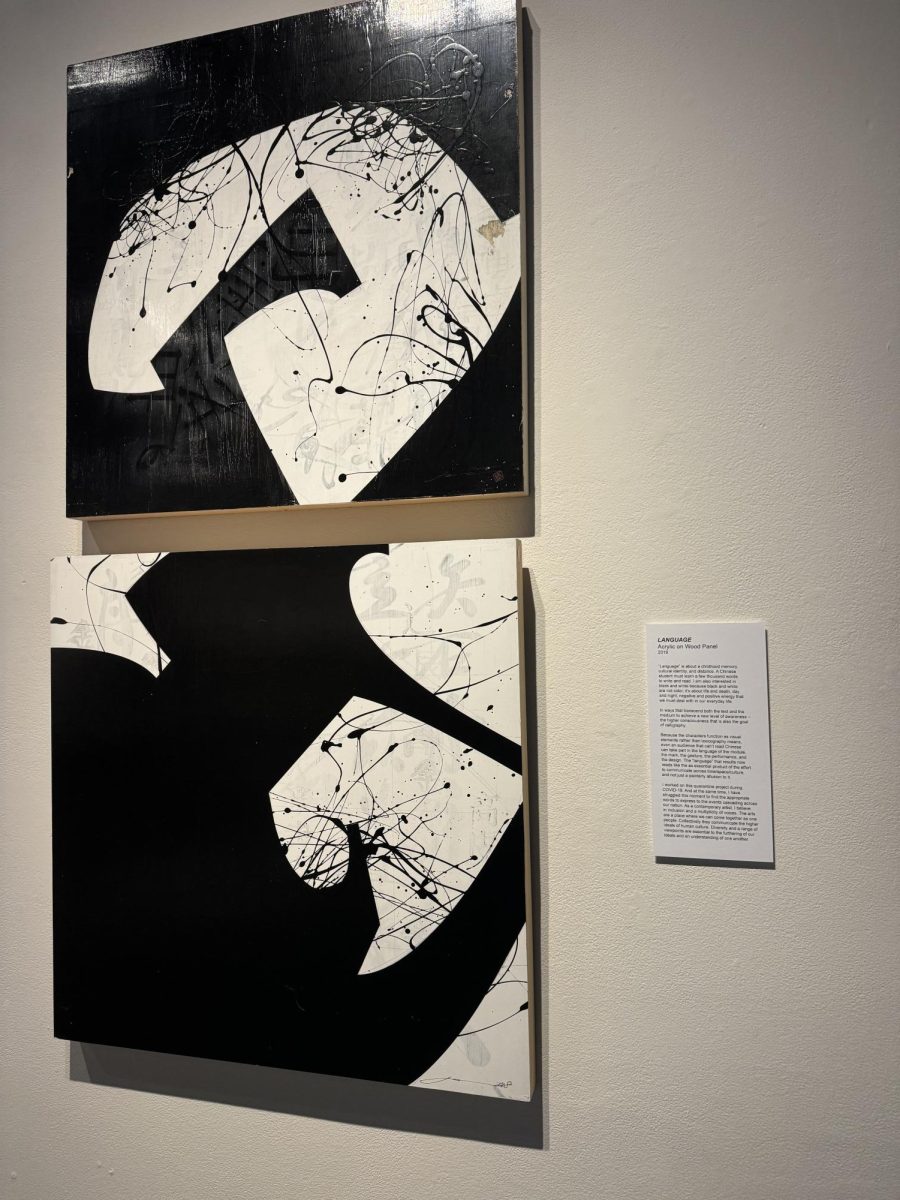University Theatre to Produce “Artemis, I”, Contemporary Greek Tragedy
Actors rehearse “Artemis, I”, a contemporary Greek tragedy coming to ODU on Feb. 23, 2023. From left to right: MK Martey, Tahji McCombs, Sofia Valerio, Anna Sosa, Brooke Mullins, Kendra Blount and Makena Salyer. Photo courtesy of ODU Theatre & Dance. Photo credit to Deborah Wallace.
February 14, 2023
“What is the value of one human life? How much of our humanity are we willing to sacrifice for glory and the spoils of war? Civilization must begin with justice, but to those being sacrificed, is slaughter ever just?”
These are the opening lines of the announcement of “Artemis, I,” the latest play produced by ODURep with support from the Hellenistic Studies Endowment. Written and directed by Deborah Wallace, “Artemis, I” retells the classical Greek story of Iphigenia.
In the original mythology, Iphigenia is the daughter of King Agamemnon, who offends Artemis when he kills her sacred stag. In retaliation, Artemis halts the winds so that he cannot sail to join the Trojan War. A seer tells Agamemnon that he must sacrifice Iphigenia to appease Artemis, and he caves to pressure from commanders and performs the sacrifice. “Artemis, I” will follow a similar trajectory, updated for a modern audience with its contemporary boldness in design and tone.
“It’s very big in terms of spectacle, it’s quite impactful,” said Deborah Wallace, the director, writer, and sound designer of “Artemis, I.” “There is the Greek tragedy, but it’s also been modernized in trying to draw the parallels between the ancient world and these stories that have been with us for millennia and the world that we live in today.”
Wallace started writing “Artemis, I” during the pandemic.
“As we saw this ever amounting death count of people, the question that was at the forefront of my mind was ‘What is that value? How do we value a human life, whether it be personally or as a culture?’” Wallace continued.
This is the source of the central idea of “Artemis, I”, which the play will explore through the lens of ancient royalty and modern language.
The principal cast includes Anna Sosa as Artemis, Reisce Owen as the Pythia, Brian Jinright as Agamemnon, Leila Bryant as Clytemnestra, and Angelina Paquin as Iphigenia. Taking the place of a traditional Greek chorus is a pantheon of female war gods. The choreography is largely created by students and orchestrated by Samantha Hendrix.
The way the play is updated for modern audiences is reflected in the costume design, which is described as Grecian, modern, and luxurious. Costume designer Meredith Magoun shared her ideas for the costume design of Agamemnon, describing him as a “general who’s not actually going to be fighting, but [who] still wants to look powerful.”
“The way we do soldiers in this day and age is camouflage, but that’s not right for this play,” said Magoun. “How do you convey a military-esque design without doing [Battle Dress Uniforms] and camo?”
The designers settled on a color scheme of white, gold, and silver; white for the mortal characters and gold and silver for the gods to highlight their divinity. The Greek chorus of war goddesses have been designed to resemble statues that Artemis has brought to life to help her enact her revenge.
Although “Artemis, I” has been modernized, inspiration has come from the past as well. Magoun revealed that both she and Wallace used “Dido’s Lament,” a song from the 1688 opera Dido and Aeneas, as inspiration for Artemis and the central sorrow that she experiences. The play’s core themes of sorrow, grief, and the value of life remain universal.
“I hope any audience when they go see any theater experiences awe and catharsis,” Magoun said. “I hope that they see the joy and the love of humanity and that it makes them hungry to experience more.”
“Artemis, I” will run on Feb. 23-25 and March 1-4 at 7 p.m., and March 5 at 2 p.m. There will be free parking in the Constant Center Garage, 1060 West 45th St. Tickets can be purchased here and start at $5 for ODU students.









